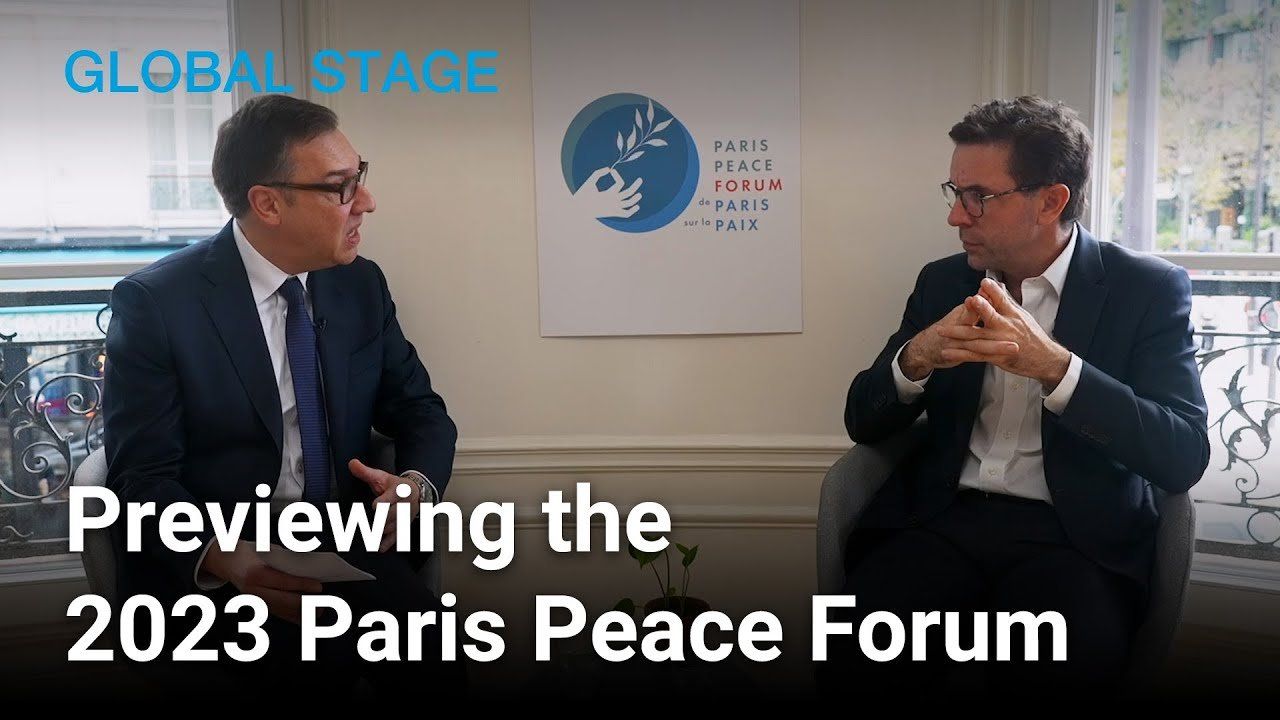Digital Governance
Paris Peace Forum Director General Justin Vaïsse: Finding common ground

Paris Peace Forum Director General Justin Vaïsse: Finding common ground | Global Stage | GZERO Media

How do you find peace in a world so riven by rivalries and competing interests? One step, according to Director General of the Paris Peace Forum Justin Vaïsse, is to challenge simplistic notions of East-West or North-South alignment.
“We're trying to get all the different actors, East, West, North, South, to work on the same issues and to make progress where they have common interests,” he said to GZERO’s Tony Maciulis on the sidelines of the 2023 Paris Peace Forum. “We focus on competition and geopolitical rivalry while we forget the iceberg coming our way when we fight on the deck of the Titanic.”
This year, the conversation centers on cyberspace and how to protect democracies in a world where rapidly advancing AI technology makes them ever more vulnerable to disinformation campaigns. The bad news is that 2024 promises to be the worst year on record for election interference. The good news, on the other hand, is that many countries have their own interest in hammering out a workable system for regulating AI, and Vaisse expects a common language regulating cyberattacks to emerge in the coming months.
At the 2023 Paris Peace Forum, GZERO also hosted a Global Stage event, Live from the Paris Peace Forum: Embracing technology to protect democracy.
5: US President Donald Trump added five new countries – Burkina Faso, Mali, Niger, South Sudan, and Syria – to the list of nations banned from traveling to the US.
With the release of its National Security Strategy, the Trump administration has telegraphed how the US intends to engage with allies, and what it expects from them.